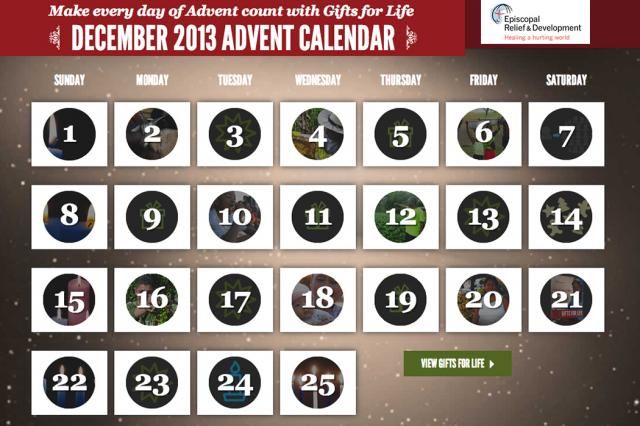The Advent Paradox

For those of us from liturgical traditions, time is a sacred thing. It is Advent, more than any other season that drives this home for us. It is our New Year in church time. We mark each day with special calendars and each week with candles on a wreath. We read prophets who set our hearts on the future and we hear Jesus’ challenge to us not to set our calendar around his coming: “But about that day and hour no one knows, neither the angels of heaven, nor the Son, but only the Father.” (Matthew 24:36)
Earthly creatures know that our time is an insufficient measure of God’s unfolding plan, yet we mark it none-the-less. God’s creation has cycles and seasons, planets revolving, seeds germinating and springing forth green, and we move through God’s story over the time of the church year. Yet, in one act that occurred more than two millennia ago, the divine pierced the veil of our time and became human. In that one act, we are tied through our time to a constant, and unchanging truth, that Christ lived for us so that he might live in us and through us. This is true throughout all time and this holiest of mysteries is time-less.

So, in this season of Advent we are once again anticipating God’s revelation to us as a baby in a manger. And, as Christians, we are continuously revealing Christ’s presence within us. In all good time, we will live out the pageant of that divine presence among us. So, the time is short and growing shorter, yet Christ is with us already. The challenge for us, to celebrate the story of God acting in a specific, self-revelatory instant, and sharing the message that Christ is always present. Maybe we could inwardly mark the Advent season with a daily act of sharing Christ’s constant presence within the world through our prayer, meditation or by simply sharing acts of kindness.
___________________________________________________________________________________
Resources
Episcopal Relief & Development provides an Advent Activities Guide as part of the Advent Toolkit for parishes. It provides ideas for communities to do as part of their observance of the season. Below are select items from the guide that you can still participate in along with a list of other Advent resources.
1. Participate in Social Media
Facebook and Twitter can create powerful social change. Post a request to your friends and family telling them about Gifts for Life. Repeat the post about once a week as a reminder – not everyone will take action the first time he or she sees it (and some will not take action at all.) Or when you purchase a gift online, be sure and utilize the “share now” feature to bring greater awareness to Gifts for Life!
2. Share The Interactive Gifts for Life Calendar via email or through Facebook and Twitter
https://www.episcopalrelief.org/landing/2013/advent/?ID=BLOG13
Or share the downloadable calendar: https://www.episcopalrelief.org/wp-content/uploads/old-uploaded/files/Church-In-Action/Toolkits/Advent/ERD-Calendar-Web.pdf
3. Popcorn and Movie Night
Invite friends and family to a popcorn and movie night and ask for a minimum donation to attend. You can show a family-friendly or any other popular movie.
4. Alternative Gifts Request
Instead of holiday gifts, ask your friends and family to make a donation. The tax deduction they will receive may enable them to contribute a larger gift.
Other Resources:
1. Daily Advent meditations delivered to your inbox from the Diocese of Newark. Sign up here
2. Forward Movement’s Daily Prayer
3. Advent podcasts from the Anglican Church of Canada.
————–
Sean McConnell is Director of Engagement for Episcopal Relief & Development.


